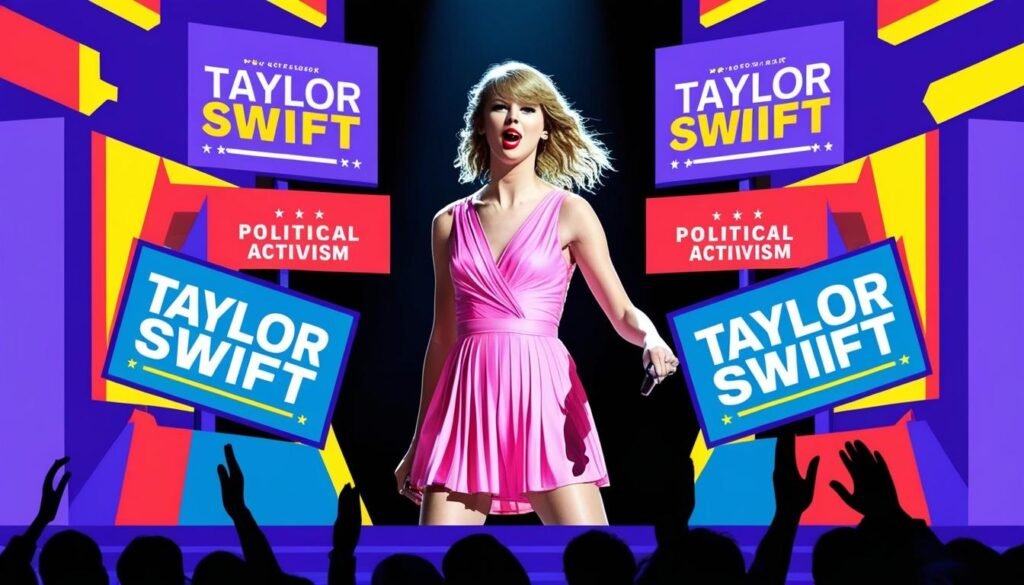Taylor Swift’s ongoing Eras Tour is reshaping economic landscapes and mobilising younger voters, highlighting the singer’s unexpected political influence amidst a crucial moment in U.S. electoral politics.
In a world where music often intersects with politics, Taylor Swift stands as a potent symbol of the cultural shifts shaping contemporary society. The renowned pop star’s ongoing Eras Tour not only reshapes economic landscapes but also wields unexpected political influence, especially poignant as the tour aligns with a pivotal moment in U.S. electoral politics.
Recently, Swift commenced the final leg of her Eras Tour in Miami, an event coinciding with what many describe as one of the most significant U.S. elections in recent memory. Swift’s influence extends beyond the realm of entertainment into the political sphere, as evidenced by her endorsing the Democratic Harris/Walz ticket, a move that has energized campaigns seeking to mobilise younger voters.
Swift’s Miami performance was marked by political undertones. She uploaded an Instagram reel showcasing her exploration of the stadium, captioned “back to the office,” a phrase carrying implicit political connotations. This comes amid ongoing dialogues surrounding gender dynamics in U.S. politics, notably highlighted by Republican figure JD Vance’s past remarks about Vice-President Kamala Harris.
In tandem with Swift’s show, efforts were made to engage her young, predominantly female, liberal-leaning fanbase in political activism. The stadium vicinity was adorned with billboards encouraging fans with slogans like “I’m in my voting era,” and campaigners distributed Kamala Harris-themed friendship bracelets, echoing fan traditions at Swift’s concerts.
Swift’s intersection with political spheres is not without controversy. Her endorsement of Harris/Walz and her stance on contentious issues such as abortion and LGBTQ+ rights have drawn severe criticism from the “MAGA” movement and subjected her to conspiracy theories that often accompany high-profile political endorsements. Despite this, Swift remains undeterred as she uses her platform to influence the democratic process.
The tour has not been devoid of challenges, notably concerning security. In a recent incident, a man who allegedly threatened Swift on social media was detained in Germany en route to attend her concert. This follows a series of security concerns surrounding her events, including the tragic stabbing at a Swift-themed dance workshop in Southport, England, and the subsequent cancellation of concerts in Vienna amid a disrupted terror plot. These incidents evoke memories of the 2017 Manchester attack at an Ariana Grande concert, a stark reminder of the vulnerabilities faced by global stars.
In response to these threats, increased security measures have been implemented. During Swift’s time in London, her security detail involved high-level scrutiny, attracting interest from local officials such as Home Secretary Yvette Cooper and London Mayor Sadiq Khan—a testament to the economic significance of her performances in contributing approximately £300 million to the city’s economy.
Swift’s influence is not confined to the financial and political; it pervades cultural narratives as well. Recognised by Time magazine as Person of the Year in 2023, Swift was acknowledged for empowering women through her music, a narrative that she now extends into the political domain by encouraging participation in elections. Her journey reflects a broader social engagement where music and personal beliefs amalgamate to potentially sway public discourse and action.
As Swift’s tour propels forward, she continues to captivate audiences while inadvertently shaping conversations about gender, politics, and societal norms. Her presence in the cultural zeitgeist underscores the evolving role of artists as influencers who can impact not just entertainment but the broader societal framework within which they operate.
Source: Noah Wire Services





